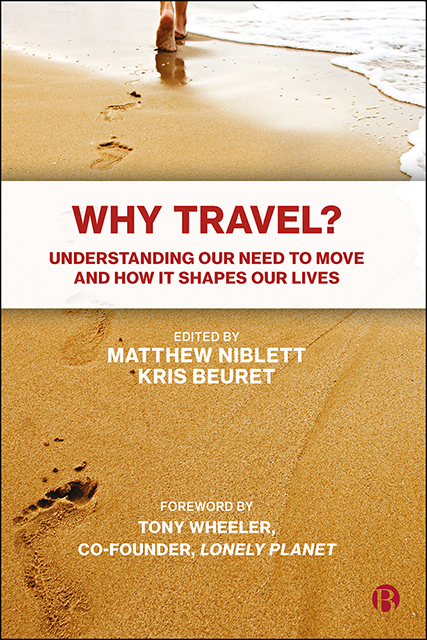Book contents
15 - Conclusion: What Have We Learnt?
Published online by Cambridge University Press: 21 April 2023
Summary
There is a bitter irony that when this book was first commissioned we were addressing the debate about the need to reduce travel on environmental grounds set against the contrasting view that human beings’ demand for travel was irrepressible. Who would have thought that at the time of writing this concluding chapter, the whole world would be locked down due to a pandemic with advice to travel ‘only when absolutely necessary’? Furthermore, silent airports, empty trains, buses and deserted city centres are a testament to the human ability to heed this advice and stay put. But for how long? Already there is evidence of growing mental illness, domestic abuse and noncompliance. Cabin fever is no longer an historical phenomenon.
So, the question ‘why travel?’ is now even more important as the world struggles to reinstate economic systems that were previously based on the implicit assumption of ever-growing demand for travel. Even Extinction Rebellion envisage a new deeply green transport strategy rather than pure localism, while others such as the CEO of Heathrow Airport predict that when the pandemic recedes travel demand will be of ‘epic proportions’.
Thus, the role of travel demand and its associated motivation is even more relevant to our purpose in producing this book, and the wide range of perspectives chosen to discuss the overarching theme of ‘why travel?’ has been more than justified. The resulting 13 chapters from the different perspectives of the natural sciences, arts and social sciences is indicative of the value of cross-disciplinary study – something still too rare in intellectual discourse. Yet in spite of such different content and theoretical perspectives, there is one conclusion shared by all our authors: the reasons for why we travel are more than practical responses for getting to and from a particular place. The common verdict is that there is a fundamental need for travel, in the absence of which humanity would not have survived in the past nor can prosper in the future. As Robert Louis Stevenson noted in a reflection of an old Taoist proverb: ‘to travel hopefully is a better thing than to arrive’ (1881: iv.190). Likewise, as stated recently by The Independent's Simon Calder: ‘travel is an immense force for good. Tourism spreads wealth from richer countries to poorer destinations, creating jobs by the hundreds of millions, and providing life-enriching experiences’ (Suleman, 2016).
- Type
- Chapter
- Information
- Why Travel?Understanding Our Need to Move and How It Shapes Our Lives, pp. 297 - 306Publisher: Bristol University PressPrint publication year: 2021



